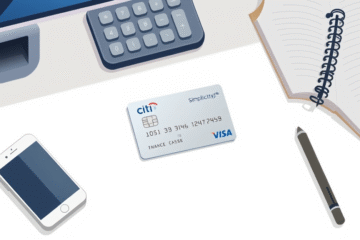Avoiding Common Mistakes With Credit Cards
Credit Card usage can significantly impact your financial well-being, but many people make critical mistakes that can lead to debt and poor credit health.
In this article, we will explore common pitfalls to avoid while using credit cards.
From carrying a balance month to month to overlooking your credit report, understanding these mistakes is vital for effective financial management.
By being aware of the potential dangers, you can make informed decisions that will help you maintain a healthy credit score and achieve your financial goals.
Why Credit Card Missteps Matter
In today’s fast-paced world, credit cards have become an essential tool for managing daily expenses and building credit scores.
Their convenience allows for easy purchases without immediate cash, making them a favored method of payment for many.
However, this convenience comes with a responsibility that cannot be overlooked.
Using credit cards wisely is crucial, as even minor oversights can escalate into significant financial challenges over time.
It’s important to recognize that the stakes are high; mishandling credit can lead to increased debt, damaged credit scores, and a reduction in financial opportunities.
Understanding the main mistakes when using a credit card is vital for maintaining financial health.
Simple errors like missing payments, carrying a balance, or maxing out your credit limit can have lingering effects on your credit report.
As you become aware of these pitfalls, you’re better equipped to make informed choices that support your financial well-being.
The following discussion delves into these critical mistakes and provides insights on how to avoid them, ensuring that your credit cards remain a beneficial tool in your financial arsenal.
Core Payment Mistakes
Using a credit card can be beneficial if managed wisely, but many users fall into common traps that can lead to financial trouble.
Chief among these payment errors are carrying a balance from month to month, making only minimum payments, and missing deadlines.
These mistakes can result in increased debt, interest charges, and negatively impact credit scores.
Carrying a Balance Month to Month
Carrying a credit card balance from month to month significantly amplifies interest charges due to compounding effects.
When you don’t pay off your balance in full, your remaining debt starts accruing interest, essentially charging you to borrow money.
This cycle of mounting obligations can quickly spiral into a situation where debt accumulation becomes overwhelming.
Consider exploring insights from the Capital One expert guide to gain a deeper understanding.
The advantages of paying your credit card bills in full each month are multifaceted.
Not only do you avoid extra costs, but you also maintain a lower credit utilization ratio, which benefits your credit score.
Insights from Bankrate highlight that a consistent payment strategy protects against unmanageable debt.
Discover how targeted strategies can contribute to a more stable financial future.
- Save on interest
- Boost credit score
Making Only Minimum Payments
Relying solely on minimum payments traps consumers in prolonged debt cycles.
By paying only the minimum, which typically covers just interest and a small portion of the principal, cardholders find their balances dwindling slowly.
While it may seem manageable in the short term, this practice results in compounding debt, leading to higher overall sums owed.
According to financial experts at a CNBC article on payoff strategies, consistently sticking to minimum payments extends the payoff timeline significantly, sometimes turning a seemingly modest debt into a monstrous financial burden.
Moreover, the interest accumulation throughout the prolonged payment period further exacerbates the situation.
The annual percentage rates on credit cards are notoriously high, causing the debt to balloon over time.
As outlined in an Experian blog about paying credit card debts, paying more than the minimum can significantly reduce the interest burden and shorten the repayment period.
To avoid these traps, cardholders should strive to pay more than the minimum each month, lightening their financial load.
Consider these long-term drawbacks:
- Higher total interest paid over the life of the debt
- Prolonged debt duration, keeping you financially strapped
Missing Payment Deadlines
Missing payment deadlines for credit cards can lead to significant financial repercussions and adversely impact your credit score.
When a payment is overdue, credit card issuers often charge late fees, which used to be as high as $41, but recent regulations have reduced these fees to a maximum of $8, as highlighted by the Consumer Financial Protection Bureau.
Furthermore, missing the payment deadline may trigger a penalty APR, increasing your interest rate, sometimes substantially, thereby making future balances more costly.
Moreover, credit scores can suffer if late payments are reported after 30 days, damaging future credit opportunities and increasing loan interest rates.
To prevent such issues, implementing strategies for timely payments is crucial.
Setting up auto-pay ensures you do not miss payment deadlines, while reminders, whether through bank alerts or mobile apps, serve as timely nudges.
Reaching out to your card issuer can also provide assistance; they might waive the fee in specific cases.
These steps not only safeguard against financial penalties but also protect your credit score from unnecessary harm.
Staying proactive in managing your payments is vital in maintaining good financial health.
Monitoring and Understanding Your Account
Monitoring and understanding your account is essential for maintaining financial stability.
Staying informed about your statements, terms, and credit reports helps you identify discrepancies and avoid costly mistakes.
By actively managing your account, you can safeguard your finances and improve your overall credit health.
Neglecting Billing Statement Reviews
Regularly reviewing your credit card statements is crucial in maintaining financial health.
Each month, scrutinize these documents to ensure that every charge aligns with your purchases.
This habit not only prevents your budget from being derailed by unauthorized charges but also serves as a line of defense against potential fraud.
Financial institutions, such as UNCLE Credit Union, emphasize the importance of early fraud detection to protect your assets.
By promptly identifying and disputing fraudulent transactions, you can leverage your card issuer’s zero-liability policies and ensure your hard-earned money isn’t lost.
Additionally, reviewing statements can highlight billing errors that might otherwise go unnoticed.
It’s not uncommon for merchants to accidentally overcharge or double-bill.
Catching these errors early enables immediate dispute and rectification, maintaining the accuracy of your accounts and avoiding unnecessary financial strain.
Engage consistently in this practice for a better grasp of your financial standing and to guard against unexpected errors that could impact your spending and savings goals.
For more insights on effective financial management, explore resources like those from HFCU, which delve into effective credit card usage strategies.
Misunderstanding Credit Card Terms
Many people find terms like APR and grace period confusing, leading to costly misunderstandings.
The Annual Percentage Rate (APR) represents the yearly interest rate applied to outstanding credit card balances.
A good resource on APR explains that while the APR may seem straightforward, it’s crucial to know it only affects balances carried past the grace period.
The grace period refers to the time frame—often about 21 to 25 days—before interest on new purchases starts accruing.
However, paying after the grace period triggers interest from the purchase date, not from the billing statement’s end, leading to unexpected charges.
Understanding these terms helps avoid unnecessary fees.
It’s important to regularly check your statement for accuracy and make payments on time to maintain financial health.
Neglecting these details can result in significant financial setbacks.
Ignoring Your Credit Report
Regularly checking your credit reports plays a crucial role in safeguarding your financial health and identity theft.
NCFCU highlights how frequent reviews can prevent fraud by allowing you to quickly identify unauthorised accounts or suspicious activities.
Early detection enables you to address these issues before they escalate, potentially saving you from significant financial distress.
Additionally, IdentityIQ underscores the importance of credit monitoring, ensuring you receive alerts for any unusual activity.
Correcting credit errors promptly is vital in maintaining a healthy credit score.
Errors such as incorrect personal information or inaccurately reported debts can negatively impact your creditworthiness.
With Experian’s credit report guide, you gain insights into the data lenders see when evaluating your applications.
Identifying inaccuracies early prevents them from affecting your financial opportunities and credit score.
Furthermore, regular checks give you the peace of mind that your credit profile accurately reflects your financial behavior.
Credit Utilization Pitfalls
Credit utilization is a critical factor that can significantly impact your credit score.
High credit utilization, or using a large portion of your available credit, can signal to lenders that you may be a risk, potentially leading to higher interest rates or denied applications.
Additionally, applying for multiple credit cards in a short period can further harm your credit profile, as each inquiry can lower your score.
Maxing Out Your Credit Limit
Maxing out your credit limit can significantly damage your credit utilization ratio, which is crucial in determining your credit score.
Maintaining a high utilization rate raises red flags with credit bureaus, potentially lowering your score by a noticeable margin.
It’s vital to be mindful of this ratio, as credit utilization accounts for a significant portion of your credit score calculation.
According to experts from Community Financial Institutions, keeping your balances low is a strategic way to maintain financial health and safeguard your score.
Moreover, keeping balances far below the limit helps provide a cushion against unexpected expenses, ensuring financial resilience.
By doing so, you not only protect your financial standing but also position yourself positively for future credit needs, such as loans or new credit lines.
When you control your expenses and consistently review your financial standing, you empower yourself to make informed decisions.
Ensuring you’re not hindered by debt opens doors to greater financial stability and opportunities.
Therefore, managing your credit limit wisely contributes to healthy credit performance, benefiting your overall financial well-being.
Applying for Multiple Credit Cards at Once
You are a highly proficient SEO content writer, and you are writing a topic about how applying for multiple credit cards at once can negatively impact your credit profile.
Each time you apply, a hard inquiry arises, momentarily reducing your credit score a little.
When applications cluster within a short timeframe, lenders might see you as a risky borrower, potentially desperate for credit, which dampens their willingness to approve you for new lines.
As shared by Experian’s insight on credit score impacts, these hard inquiries accumulate, heightening the adverse effect.
Relevant strategies to mitigate these impacts involve spacing out credit applications and monitoring your credit reports.
Recognizing these consequences helps in maintaining a healthy financial profile and avoids unintended alarms to creditors.
By understanding the mechanics behind credit score impact, you can make informed decisions, thereby optimizing your creditworthiness.
Credit Card management is crucial for financial stability.
By avoiding common errors like maxing out your limit and neglecting payment deadlines, you can enhance your credit health and secure a better financial future.



0 Comments